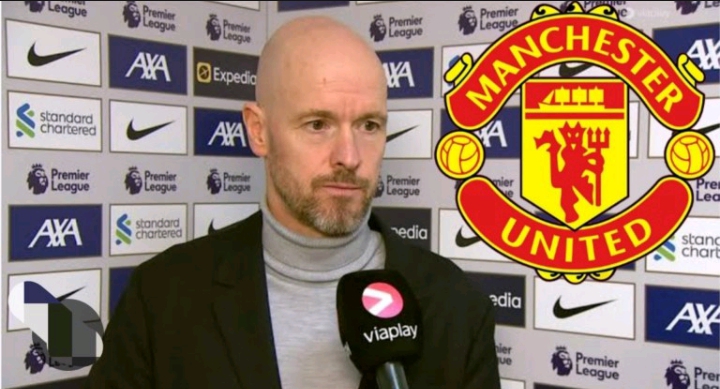After Manchester United’s disappointing 2-1 loss to Brighton at the Amex Stadium, manager Erik ten Hag openly voiced his concerns about the defensive lapses that allowed Brighton to secure a late winning goal. In his post-match interview, Ten Hag singled out three players for their roles in the critical moments that led to Simon Adingra’s decisive play. He expressed frustration over the defensive performance of Diogo Dalot, Noussair Mazraoui, and, to a lesser extent, young midfielder Kobbie Mainoo, for their inability to thwart Adingra’s efforts, allowing him to cut inside and deliver a crucial cross.
The game’s turning point came in the dying moments, during the fifth of seven minutes of added time in the second half. With Manchester United desperately holding on for a point, Adingra managed to find space on the wing and deliver a pinpoint cross. The ball was met by Joao Pedro, who rose above United’s defenders to head it past goalkeeper Andre Onana, sealing the victory for Brighton. Ten Hag was visibly frustrated by this late goal, criticizing his players for failing to apply sufficient pressure on Adingra. The Dutch manager emphasized that the trio of defenders should have forced Adingra towards the touchline and away from his stronger right foot, which would have likely disrupted his ability to deliver such an accurate cross.
“We failed to stop the cross,” Ten Hag stated bluntly after the match. “There were three right-footed players who should have forced him down the line, but instead, they allowed him to get the cross in. This is something we need to discuss as a team, how we handle such situations.” His comments highlighted the need for better defensive coordination and situational awareness, as well as the importance of tactical discipline, especially in high-pressure moments late in the game.
Earlier in the match, United’s defensive frailties had already been exposed. In the first half, a well-executed low cross from Kaoru Mitoma found former Manchester United player Danny Welbeck, who capitalized on the opportunity to give Brighton the lead. Despite the setback, United managed to regroup and find an equalizer through Amad Diallo around the hour mark. The young winger’s goal provided a glimmer of hope and injected some much-needed momentum into United’s performance.
However, United’s misfortunes continued as they had a goal disallowed later in the second half. Alejandro Garnacho appeared to have given United the lead, only for VAR to intervene and rule out the goal for offside. Joshua Zirkzee was judged to have been in an offside position, interfering with play, leading to the reversal of what could have been the match-winning moment. The disallowed goal was a significant blow, as it meant United were unable to take advantage of their comeback efforts and ultimately left themselves vulnerable to Brighton’s late winner.
Reflecting on the match, Ten Hag didn’t shy away from criticizing his team’s overall performance. He described both of Brighton’s goals as “soft” and emphasized that they were preventable with better defensive organization and decision-making. He acknowledged that while there were positive aspects to United’s play, particularly in how they responded after going behind, the team’s inability to maintain control and composure at critical junctures was a major concern.
“Early in the second half, we needed to assert more control. We have to be more clinical and aggressive in both penalty areas,” Ten Hag noted, underscoring the need for his players to show greater assertiveness and sharpness, both in attack and defense. His remarks reflected a broader issue with United’s ability to manage games effectively, particularly when faced with adversity. Ten Hag’s comments after the match made it clear that he expects his team to learn from these mistakes and show significant improvement as the season progresses.
